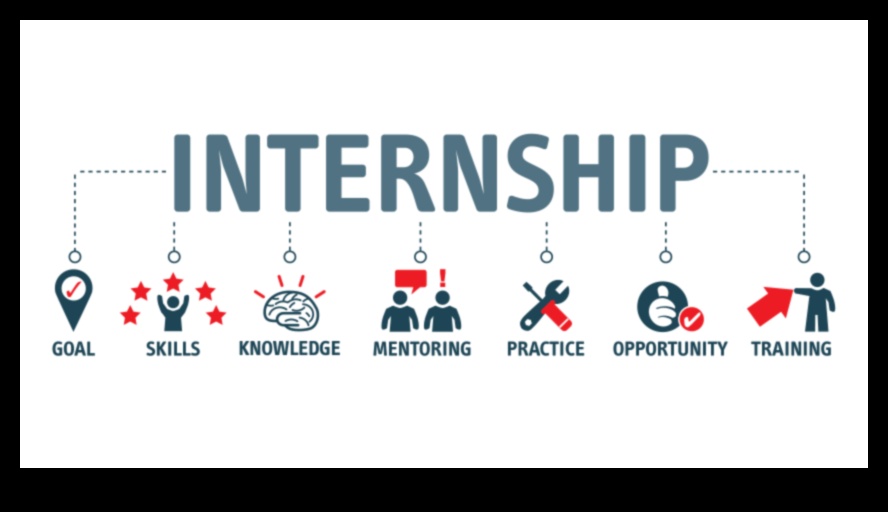
How to Find an Internship
This guide provides information on how to find a summer internship or other short-term work experience. It covers topics such as where to find internships, how to apply for internships, and what to expect during an internship.

Benefits of Internships
Internships offer a number of benefits for students and recent graduates. They can help you to:
- Gain experience in your field of interest
- Network with professionals in your field
- Learn new skills
- Get a foot in the door at your dream company
How to Find Internships
There are a number of ways to find internships. Some of the most popular methods include:
- Using online job boards
- Contacting companies directly
- Attending career fairs
- Networking with friends, family, and professors

Applying for Internships
Once you have found a few internships that you are interested in, you will need to apply for them. The application process for internships can vary from company to company, but some of the most common steps include:
- Submitting your resume and cover letter
- Taking a phone interview
- Interviewing in person

Interviewing for Internships
Interviewing for an internship is similar to interviewing for a full-time job. However, there are a few things that you should keep in mind when interviewing for an internship:
- Be prepared to answer questions about your experience and skills
- Be enthusiastic and show that you are interested in the company and the internship
- Ask questions about the internship and the company

Negotiating an Internship Offer
Once you have received an internship offer, you may need to negotiate the terms of your employment. This includes things like your salary, benefits, and start date.
When negotiating an internship offer, it is important to be prepared and to know what you want. You should also be aware of the company’s policies and what other interns are being offered.
Accepting an Internship Offer
Once you have negotiated an internship offer, you will need to decide whether or not to accept it. This is a big decision, so it is important to weigh the pros and cons carefully.
Some of the things you should consider when making your decision include:
- The company and the internship itself
- The location of the internship
- The salary and benefits
- Your other options
Getting the Most Out of Your Internship
An internship is a great opportunity to learn and grow. Here are a few tips for getting the most out of your internship:
- Be proactive and take initiative
- Ask questions and learn as much as you can
- Network with your colleagues and mentors
- Get involved in extracurricular activities
Landing a Full-Time Job After Your Internship
An internship can be a great way to get your foot in the door at a company and land a full-time job. Here are a few tips for landing a full-time job after your internship:
- Do your research and
Feature Description Internship A short-term work experience that provides students or recent graduates with the opportunity to gain practical experience in their field of interest. Find internship The process of searching for and applying for internships. Apply for internship The process of submitting your resume and cover letter to an employer in order to obtain an internship. Summer internship An internship that takes place during the summer months. College internship An internship that is offered to students who are enrolled in college. II. Benefits of internships
Internships can provide a number of benefits for students and recent graduates, including:
- Gaining valuable work experience in your field of interest
- Networking with professionals in your field
- Learning new skills and developing your career
- Getting a foot in the door at your dream company
- Improving your resume and job prospects
II. Benefits of internships
Internships can provide a number of benefits for students and recent graduates, including:
- Gaining valuable work experience in your field of interest
- Networking with professionals in your field
- Learning new skills and developing your career
- Getting a foot in the door at your dream company
- Improving your resume and job prospects
If you are considering an internship, it is important to do your research and find a position that is a good fit for your skills and interests. You should also make sure that the internship is offered by a reputable company or organization.
Internships can be a great way to get started in your career and gain the experience and skills you need to succeed. If you are looking for a way to make a difference in your field, consider pursuing an internship.
IV. Applying for internships
Once you have identified a few internships that you are interested in, it is time to start applying. The following tips will help you write a strong application that will get you noticed by potential employers:
Do your research. Before you start applying for internships, take some time to research the companies you are interested in. What are their goals? What kind of work do they do? What are their internship programs like? The more you know about a company, the better you will be able to tailor your application to their specific needs.
V. Interviewing for internships
Write a strong resume. Your resume is your first impression, so it is important to make sure it is well-written and error-free. Highlight your relevant skills and experience, and be sure to include a clear and concise objective statement.
Write a strong cover letter. The cover letter is your chance to sell yourself to a potential employer. Use this opportunity to explain why you are interested in the internship, what you can bring to the company, and how you would fit into their team.
Network. Networking is one of the best ways to find internships. Talk to your professors, classmates, and friends and family members who work in your field. They may be able to put you in touch with potential employers or give you advice on your internship search.
Apply early. The best internships are often filled up quickly, so it is important to apply early in the process. Most internships start in the summer, so you should start applying in the fall or winter.
Be persistent. Not every internship application will result in an interview. Don’t get discouraged if you don’t hear back from every company you apply to. Keep applying for internships and eventually you will find one that is a good fit for you.Interviewing for an internship is a great opportunity to show potential employers what you have to offer and why you would be a good fit for their company. It is also a chance for you to learn more about the company and the internship position.
When preparing for an internship interview, it is important to do your research on the company and the internship position. This will help you to answer questions intelligently and show that you are genuinely interested in the opportunity. You should also practice your answers to common interview questions.
During the interview, it is important to be yourself and to be confident. Make eye contact with the interviewer and speak clearly. Be prepared to answer questions about your experience, skills, and goals. Be sure to ask questions of your own about the company and the internship position.
Following up after the interview is also important. Send a thank-you note to the interviewer and express your continued interest in the internship position.
Here are some tips for interviewing for internships:
- Do your research on the company and the internship position.
- Practice your answers to common interview questions.
- Be yourself and be confident.
- Make eye contact with the interviewer and speak clearly.
- Be prepared to answer questions about your experience, skills, and goals.
- Ask questions of your own about the company and the internship position.
- Follow up after the interview with a thank-you note.
VI. Negotiating an internship offer
Once you have received an internship offer, it is important to negotiate the terms of your employment. This includes the salary, benefits, and start date.
Salary: The starting salary for an internship varies depending on the company and the location. However, you should always try to negotiate your salary. A good rule of thumb is to ask for a salary that is 10-15% higher than the initial offer.
Benefits: In addition to salary, you should also negotiate for benefits such as health insurance, paid time off, and a laptop.
Start date: You should also negotiate the start date of your internship. If you have other commitments, such as school or another internship, you may need to push back the start date.When negotiating your internship offer, it is important to be polite and professional. Be prepared to justify your request and be willing to compromise. If you are not happy with the initial offer, do not be afraid to walk away. There are plenty of other internships out there.
Here are some tips for negotiating an internship offer:
Do your research: Before you negotiate your offer, do your research on the company and the industry. This will help you to understand the market value of your skills and experience.
Be prepared: When you go into the negotiation, be prepared to justify your request. Have a list of reasons why you deserve a higher salary or more benefits.
Be polite and professional: Even if you are not happy with the initial offer, it is important to be polite and professional in your negotiations.
Be willing to compromise: Be willing to compromise on your request. The company may not be able to meet all of your demands, but you may be able to reach a mutually beneficial agreement.
Be prepared to walk away: If you are not happy with the final offer, do not be afraid to walk away. There are plenty of other internships out there.VII. Accepting an internship offer
Once you have received an internship offer, it is important to carefully consider your decision before accepting. Here are a few things to keep in mind:
- The company and the internship itself. Is the company a good fit for your interests and career goals? Is the internship aligned with your skills and experience?
- The location. Is the internship located in a city or town that you are interested in living in?
- The pay and benefits. What is the pay for the internship? Does the company offer any benefits, such as housing or transportation assistance?
- The schedule. What are the hours for the internship? Is the internship full-time or part-time?
- The opportunity for growth. Does the internship offer the opportunity to learn new skills and grow your career?
Once you have considered all of these factors, you can make an informed decision about whether or not to accept the internship offer. If you decide to accept the offer, be sure to send a written acceptance letter to the company.
Getting the most out of your internship
An internship is a great opportunity to learn new skills, gain experience in your field of interest, and network with professionals. Here are some tips for getting the most out of your internship:
Be proactive. Don’t wait for your supervisor to assign you tasks. Take initiative and ask for more work.
Ask questions. Don’t be afraid to ask questions, even if you think they’re basic. Your supervisor is there to help you learn.
Be a team player. Be willing to help out your colleagues and contribute to the team.
Network. Take advantage of the opportunity to meet new people and build relationships. These relationships can help you land a job after your internship.
Stay positive. Even if things get tough, stay positive and focused. Your attitude will make a difference in your experience.By following these tips, you can make the most of your internship and gain valuable experience that will help you in your career.
Landing a full-time job after your internship After you complete your internship, you may be eager to land a full-time job. Here are some tips for how to make the transition from intern to employee:
- Stay in touch with your internship supervisor.
- Network with other employees at the company.
- Update your resume and cover letter.
- Practice your interview skills.
- Apply for jobs early and often.
- Be prepared to negotiate your salary.
By following these tips, you can increase your chances of landing a full-time job after your internship.
X. FAQ
Q: Where can I find internships?
A: There are many different ways to find internships. Some of the most popular methods include:- Searching online job boards
- Networking with friends, family, and professors
- Contacting companies directly
- Attending career fairs
Q: How do I apply for internships?
A: The application process for internships can vary depending on the company. However, there are some general steps that you can follow to apply for an internship:- Research the company and the internship position.
- Write a resume and cover letter that highlights your skills and experience.
- Prepare for and practice your interview skills.
- Follow up after your interview.
Q: What should I expect during an internship?
A: Your internship experience will vary depending on the company and the position. However, there are some general things that you can expect during an internship:- You will learn new skills and gain experience in your field of interest.
- You will work on real-world projects and collaborate with other interns and employees.
- You will have the opportunity to network with professionals and learn about their careers.
- You will get a taste of what it is like to work in a professional setting.